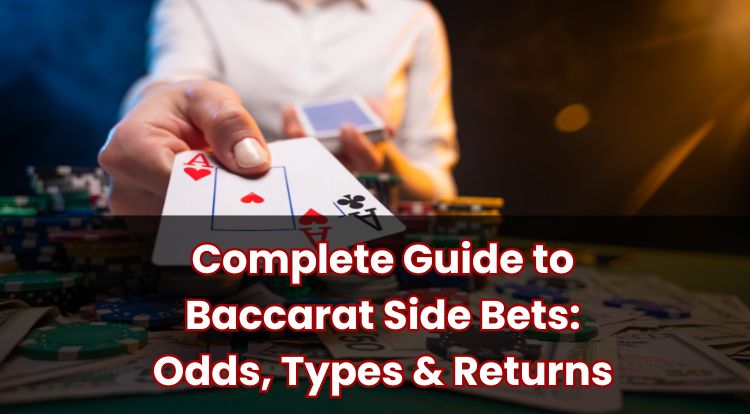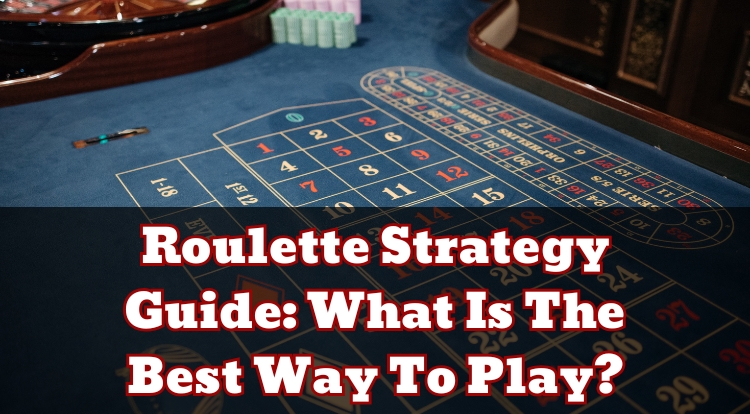Roulette Odds & RTP: What Is Return to Player?
Roulette has been around for centuries, yet its terms and numbers may seem puzzling when you first encounter them.
You might see percentages like “97.3% RTP” or hear talk of the “house edge” and wonder how these figures actually relate to your chances.
In this guide, we’ll explore what those numbers mean, how they’re calculated, and why they differ between roulette versions. We’ll also explain how the type of bet you place affects the probability of a potential win, and why no method can change the fact that roulette is a game of chance. By the end, you’ll be able to read roulette rules with more confidence and make more informed choices.
How Does Roulette RTP Work?
Return to Player, or RTP, is a theoretical figure that shows the average percentage of all wagers a game is expected to return to players over time. It is worked out using the game’s rules, bet types, and payout structure, and is based on results from millions of simulated spins. It is not a prediction of what any individual player might win or lose.
For example, European roulette has 37 numbered pockets, one of which is zero. Based on how the payouts are set, this version has an RTP of about 97.3%. That means that across millions of spins, the game may give back roughly £97.30 for every £100 wagered in total by all players. The other £2.70 represents the casino’s long-term statistical profit—what’s called the “house edge.”
Remember, this figure is theoretical. You could win more, or lose more, because each spin is independent and unaffected by what came before. The RTP simply describes the design of the game, not what you personally might receive.
What Are the Odds on a Roulette Table?
Roulette odds are based on how many possible outcomes exist on the wheel and how many of those outcomes would make your bet a winner.
In European roulette, the wheel has one green zero, plus numbers 1 to 36, giving a total of 37 pockets. A “straight-up” bet on a single number wins if the ball lands in that exact pocket, giving a probability of 1 in 37—around 2.7%.
An “even-money” bet, such as red or black, wins if the ball lands in one of 18 pockets of the chosen colour. Since there are 37 pockets in total, the probability of winning is 18 in 37, or about 48.6%. The other 19 pockets—including the single green zero—result in a loss for that bet.
American roulette adds an extra green pocket marked “00”, bringing the total to 38. This changes the maths slightly, reducing the probability of a straight-up bet to 1 in 38 (about 2.63%) and an even-money bet to 18 in 38 (around 47.37%). The potential payouts remain the same, but the extra pocket makes the game marginally less favourable for the player.
Roulette RTP vs House Edge: What’s the Difference?
The RTP and house edge are two ways of describing the same relationship between players and the casino, but from opposite perspectives.
The RTP is the percentage of wagers the game may theoretically return over time. The house edge is the percentage the casino may statistically keep. They always add up to 100%.
So, in European roulette, a 97.3% RTP means the house edge is 2.7%. In American roulette, the RTP drops to around 94.74%, giving the house edge roughly 5.26%. The lower the RTP, the higher the house edge, and vice versa.
Understanding this can help you compare roulette versions and other games on more than just appearance.
Which Roulette Version Has the Best RTP?
Among standard versions, French roulette can offer the highest theoretical return for certain bets. This is because it sometimes uses special rules, like La Partage or En Prison.
With La Partage, if you make an even-money bet—such as red or black—and the ball lands on zero, you receive half of your original stake back. En Prison is slightly different: if the ball lands on zero, your bet is not immediately lost, but is left on the table for the next spin, giving you another chance to try and win.
When these rules apply, the RTP for those even-money bets can reach about 98.65%, leaving a house edge of around 1.35%. This doesn’t mean the whole game has that RTP—other bet types in French roulette may still follow the same potential payouts as European roulette.
Why Do Roulette Odds Matter to Players?
Every type of bet in roulette has its own probability and possible payout. The relationship between the two is what gives the game its character.
A single-number bet pays 35 to 1 because it’s less likely to come in—about a 2.7% chance in European roulette. By contrast, an even-money bet pays 1 to 1 because it might win almost half the time.
Knowing these odds gives you a clearer picture of the possible outcomes and payouts for different bets.
Some bets have a lower probability of winning, but offer higher potential payouts, while others have a higher probability, but offer smaller returns. There is no single “better” option, as the choice depends on what you are comfortable with and the way you choose to play.
Do Online and Live Roulette Games Have Different RTPs?
Most standard online roulette games, when following European rules, use the same RTP as their land-based counterparts—about 97.3%. Live dealer roulette games, streamed from a real wheel, also generally follow the same theoretical return.
However, online casinos may sometimes offer special versions with extra features, side bets, or bonus payouts. These can change the RTP slightly—sometimes up, sometimes down. That’s why it can be useful to check the game’s help or information section before playing, so you know what you’re dealing with.
Can You Increase Your Odds of Winning Roulette?
Roulette is a game of chance, and the outcome of each spin is random. Every spin is separate from the one before it, and no system or pattern changes the actual probability of winning. While you cannot influence the result, you can select the version of roulette that aligns with the type of bets you prefer.
Play Online Roulette at Red Casino
Red Casino is licensed and regulated by the UK Gambling Commission (UKGC), providing a trusted environment for online gaming. If you’re considering roulette, you’ll find many popular options here.
Alongside roulette, Red Casino offers many other well-known table games and online slots for you to explore. Whether you’re looking to try something different, or enjoy a familiar favourite, there’s something for nearly everyone.
Our site also provides optional tools for setting limits on deposits, time spent playing, and other personal settings. These features are there to support responsible play and help you manage how you interact with the games.
Roulette remains a game of chance, and no strategy can guarantee a win. Choosing bets and versions that suit your preferences is part of the experience, but it’s important to play within limits you’re comfortable with and to take a break if it stops being enjoyable.
*All values (Bet Levels, Maximum Wins etc.) mentioned in relation to these games are subject to change at any time. Game features mentioned may not be available in some jurisdictions.
**The information provided in this blog is intended for educational purposes and should not be construed as betting advice or a guarantee of success. Always gamble responsibly.




